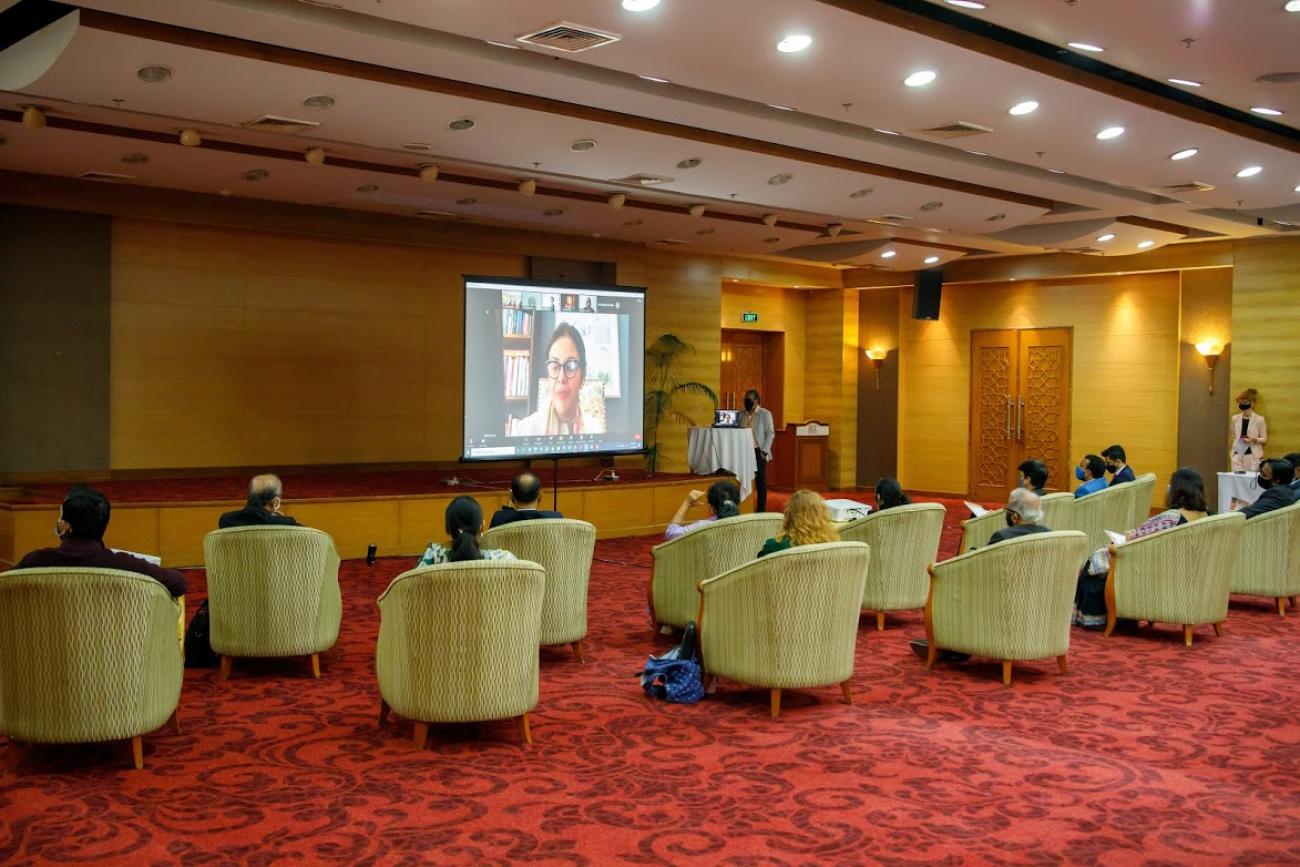Expanding the SDGs Financing Network – Engaging Private Sector

Ms. Mia Seppo, UN Resident Coordinator (UNRC),= emphasized on the importance of INFF4SDG and the private sector’s role in achieving the priority SDGs.
A day-long workshop, under the auspices of Integrated National Financing Framework for Accelerating Achievement of SDGs (INFF4SDGs) in Bangladesh, funded by the Joint SDG Fund of the UN and in cooperation with Strengthening Capacity for SDGs (SC4SDGs) funded by UNEP-PEA, was held on 28th December 2020 at the Bangabandhu International Convention Centre (BICC). Organized by UNWOMEN, UNCDF, ILO and UNDP in collaboration with the UN Resident Coordinator Office (RCO), the workshop was held with the purpose of carrying out technical consultations with private sector representatives on SDG investments in WATSAN, renewable energy and climate finance. More than sixty members from private sector companies and banks, including International Financing Institutions (IFIs), attended the event. Participants joined both in person and online, discussing possible avenues to develop stronger market analytics and scaling of effective financing instruments, for the three SDG investment areas.
Ms. Mia Seppo, UN Resident Coordinator (UNRC), emphasized on the importance of INFF4SDG and the private sector’s role in achieving the priority SDGs, while Ms. Rubana Huq, former President of Bangladesh Garment Manufacturers and Exporters Association (BGMEA), discussed on the inter linkages of different SDGs, and how private sector contribution, could tackle issues through their responsible contribution. The workshop was divided into two sessions, market analytics and financing instrument sessions.
For compiling industry and community data, discussions reflected upon the need for technical support. This would in turn result in credible market analysis that could make way for a conducive environment for investors. The requirement of a definite business case on clean and renewable energy, especially for sectors promoting green initiatives, was also prioritized.
It was also discussed that data driven policy advocacy assessments could be used to identify low hanging fruits, by engaging the private sector. FIs brought up the availability of climate finance funding, where a lack of appropriate projects to invest in was proving a challenge. Moreover, supportive policy instruments such as favorable tax policies, incentives for SMEs and MSMEs working in the area of priority SDGs was also mentioned, which were further incentives for companies looking for investors. The importance of the Government, UN agencies and private sector joining resources to work on the possible ways to highlight business cases for industries to invest in was pointed out, leading to a climate friendly production system in Bangladesh.
The workshop ended on a positive note, aiming at initiating a more active participation from the private sector representatives towards SDG financing, through future synergies and cooperation. The aim was to create a platform where the private sector representatives can express their interests towards the cause of SDGs financing. Initiatives like the Oversight Committee to be formed with the ERD, where FBCCI could play a more active role in representing the private sector, could potentially open the pathway for more representatives to join. The workshop ultimately provided the private sector an opportunity to be part of this multi-stakeholder platform towards advancing SDGs financing.








